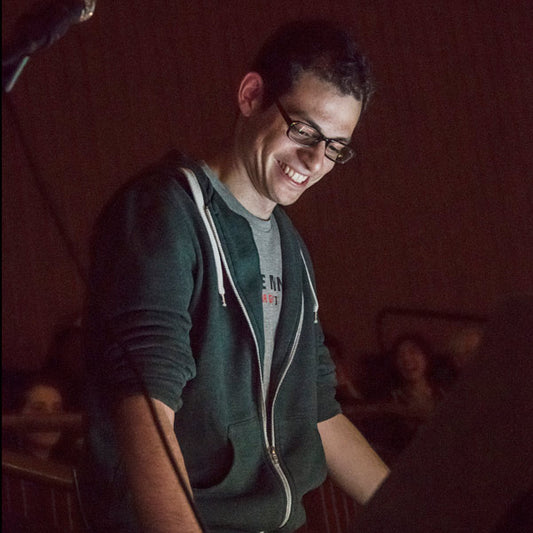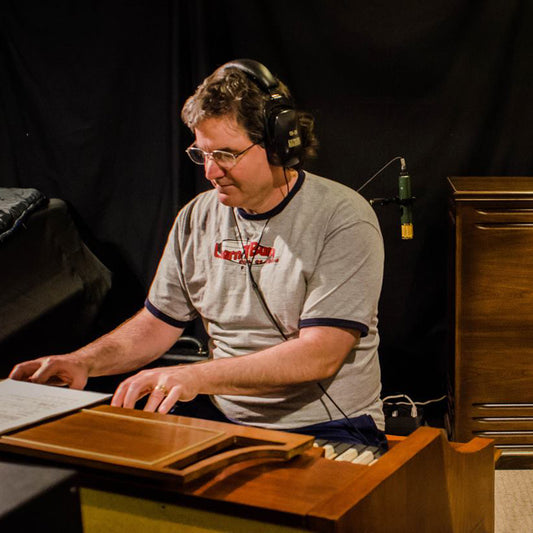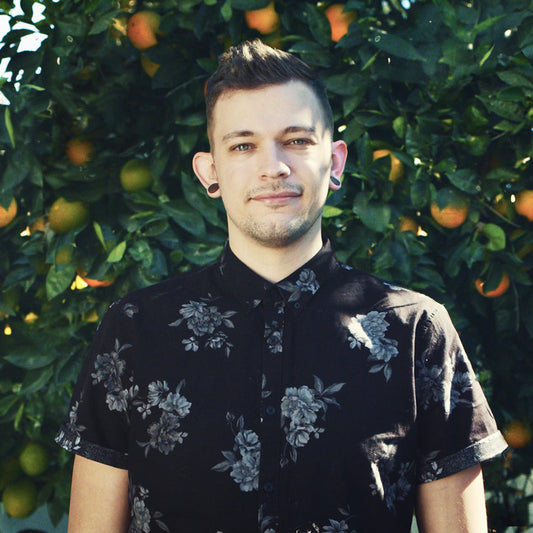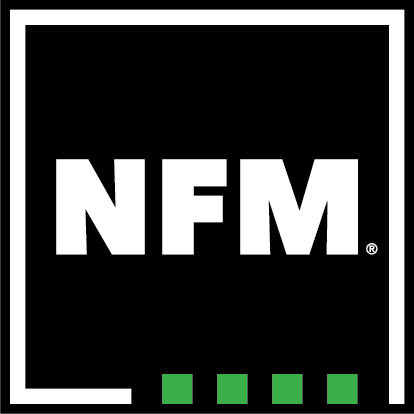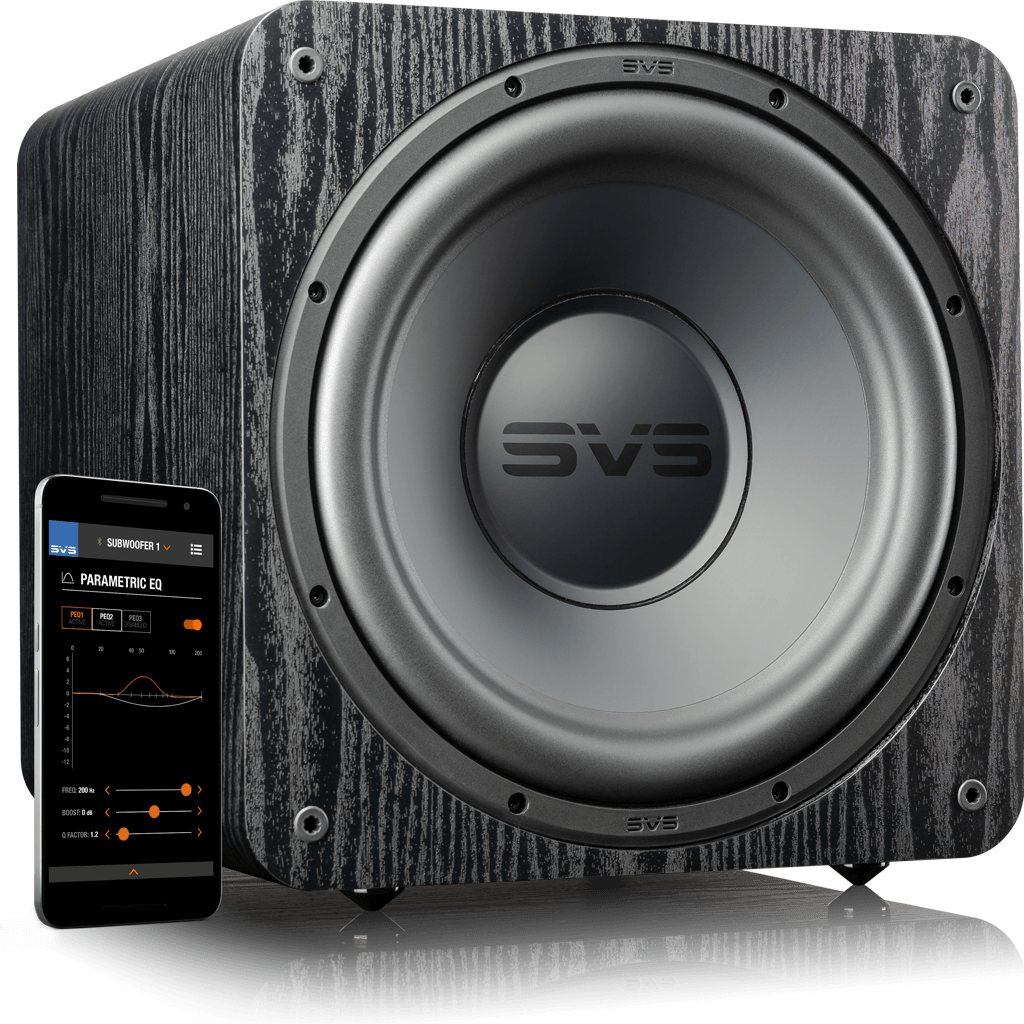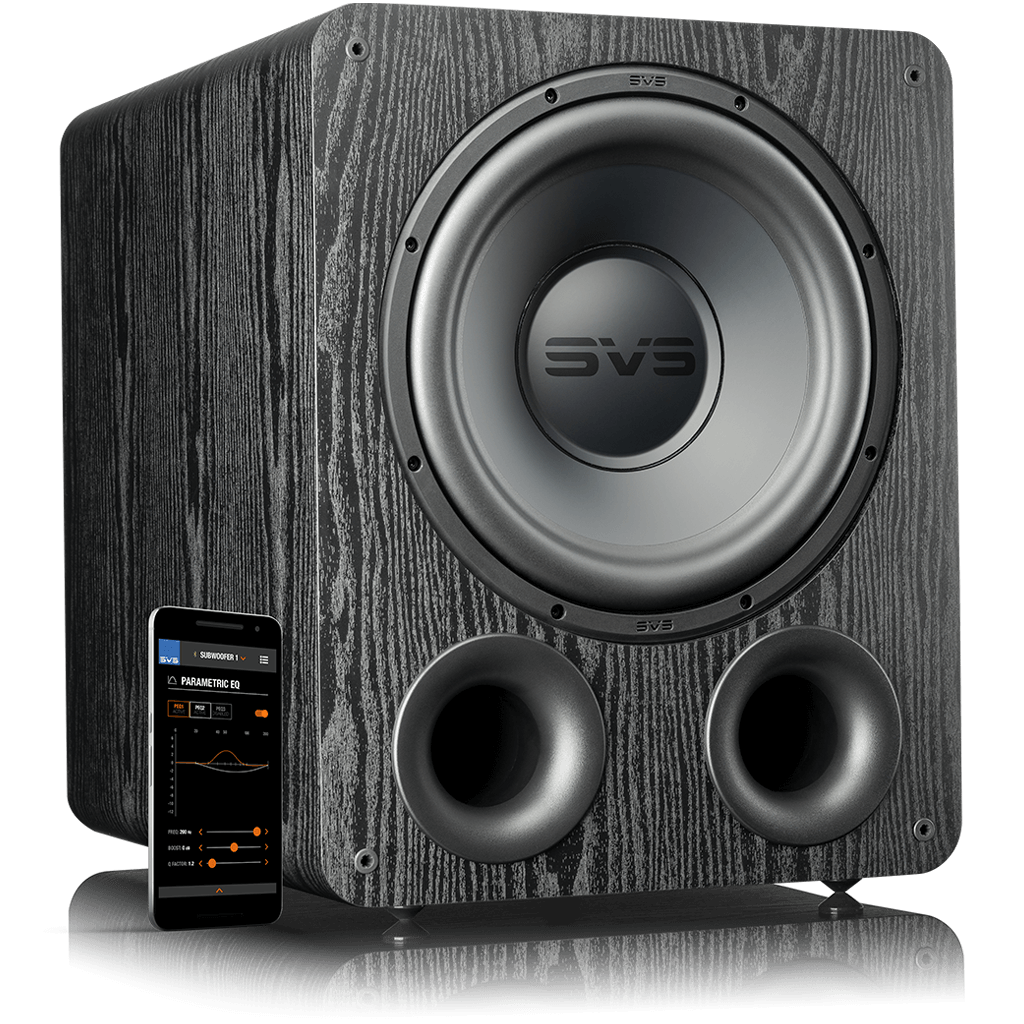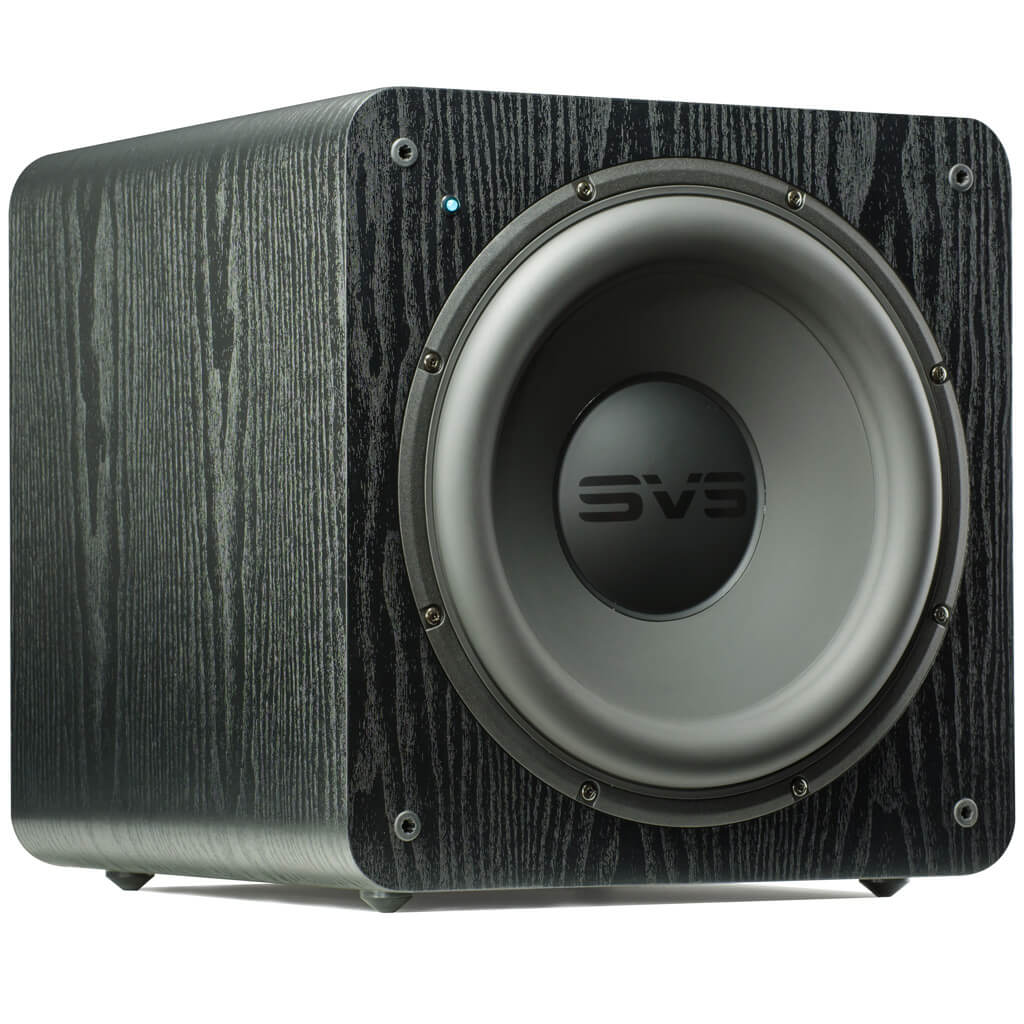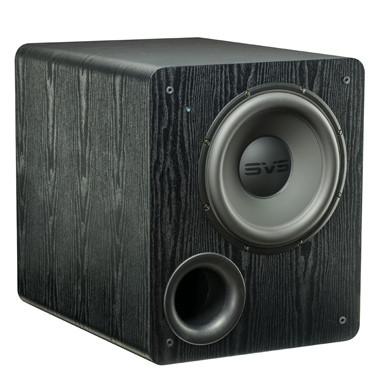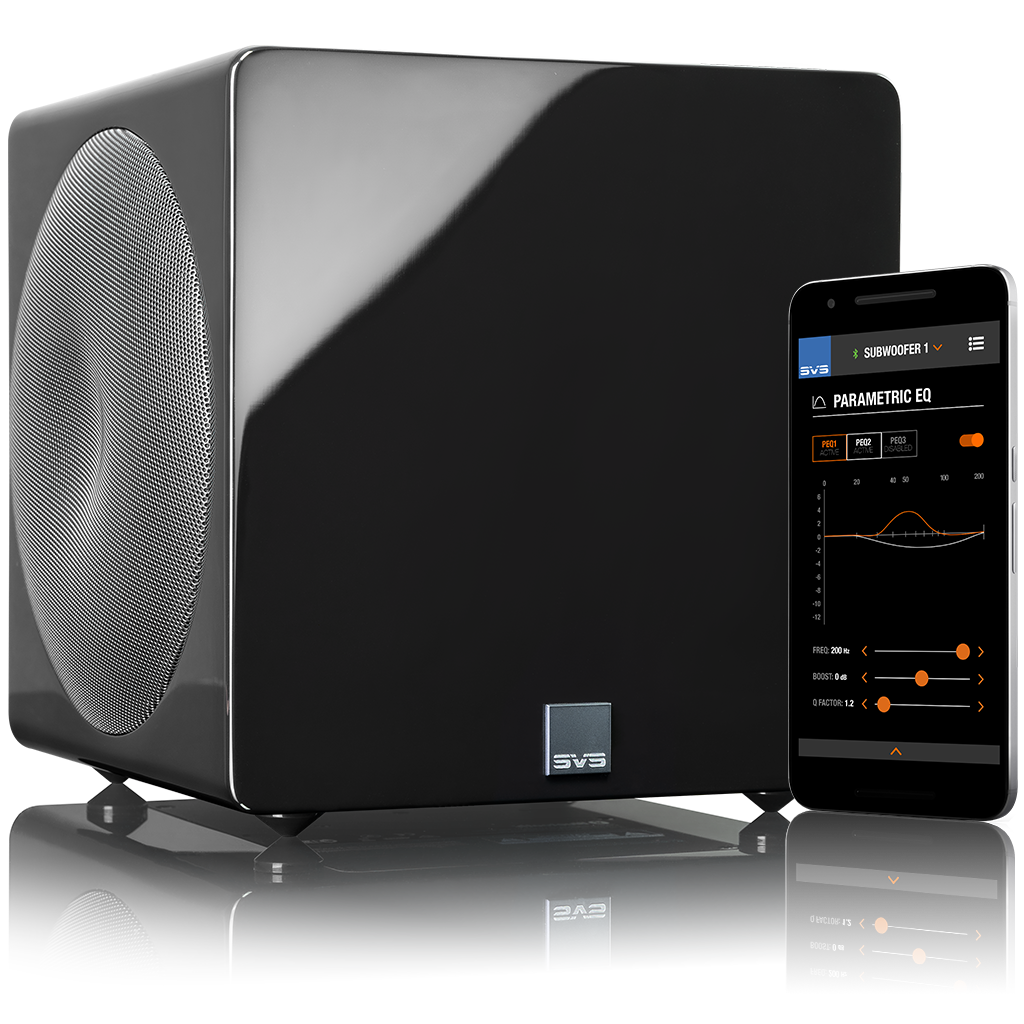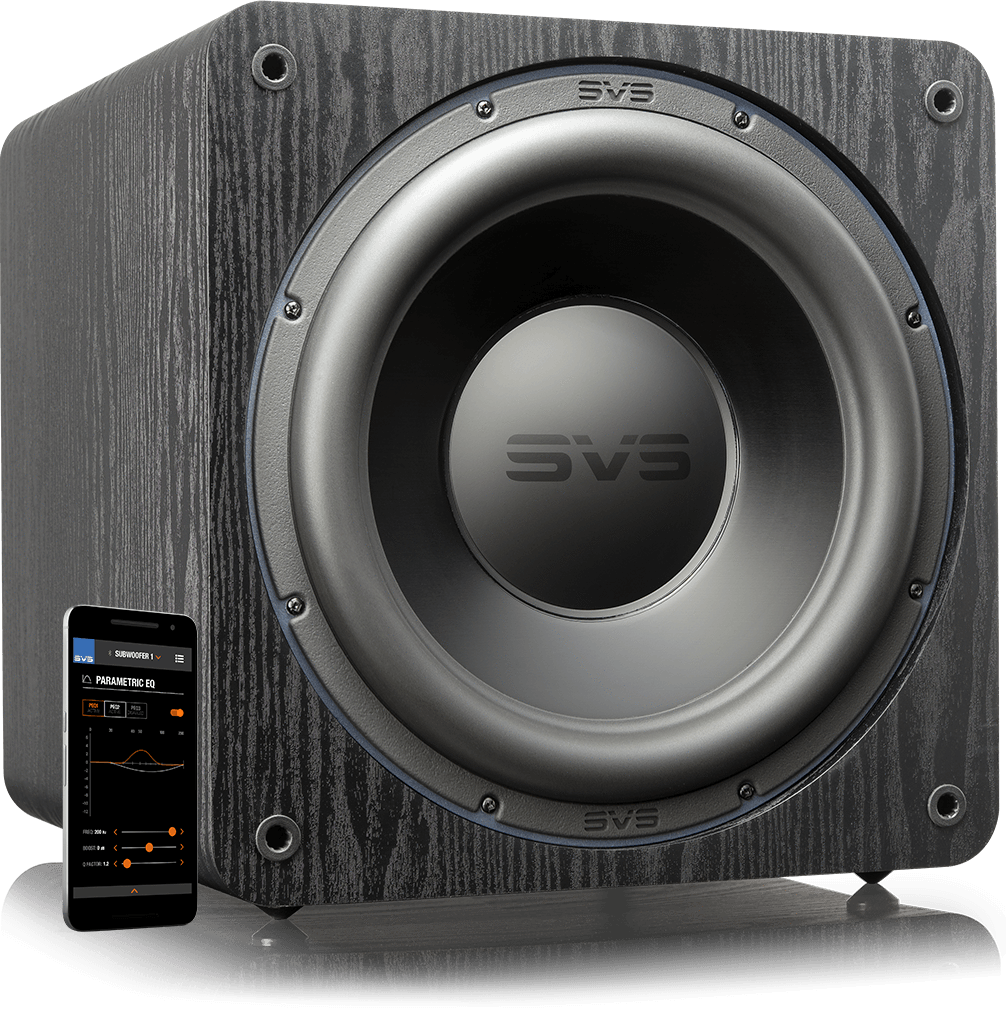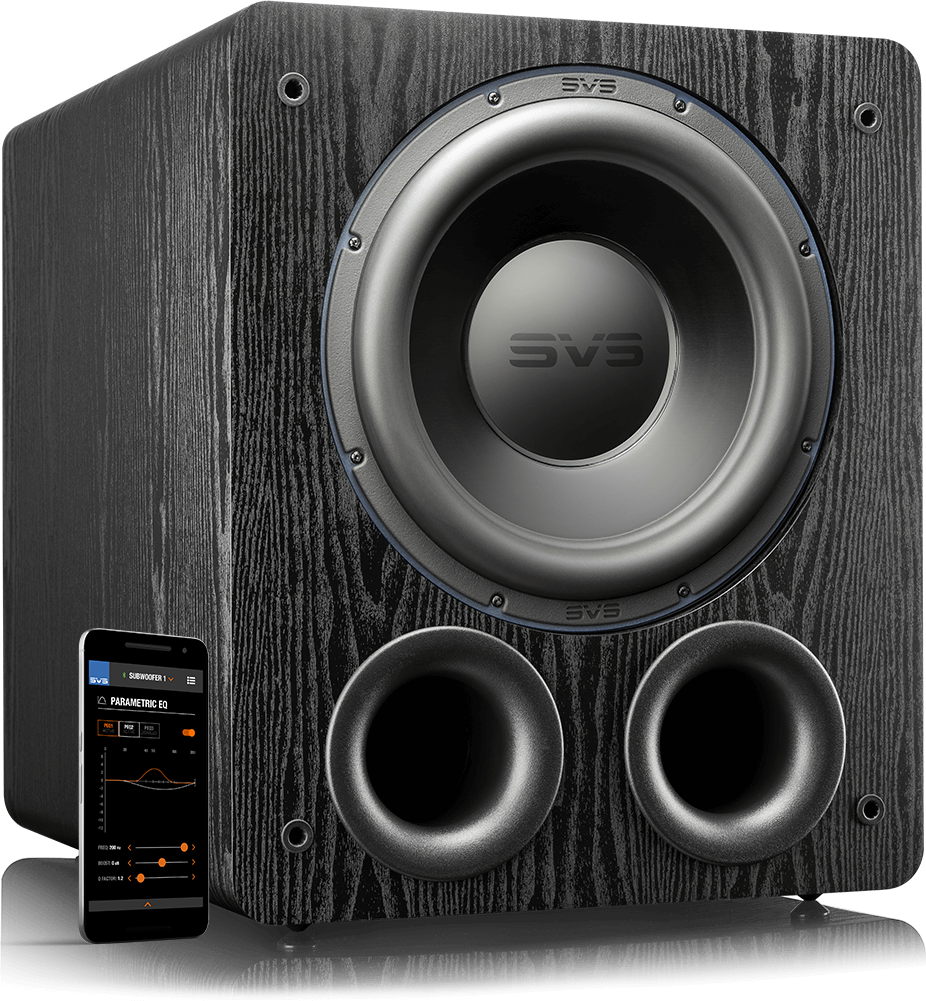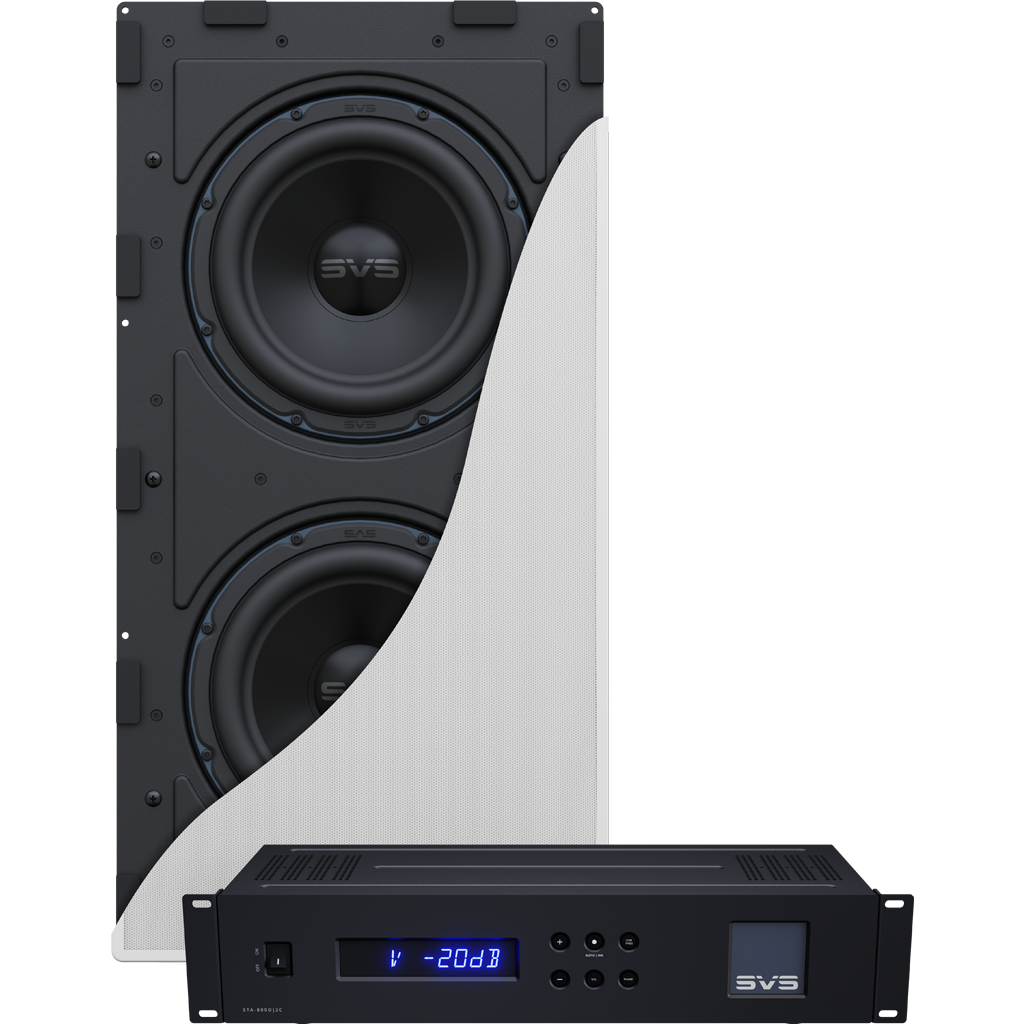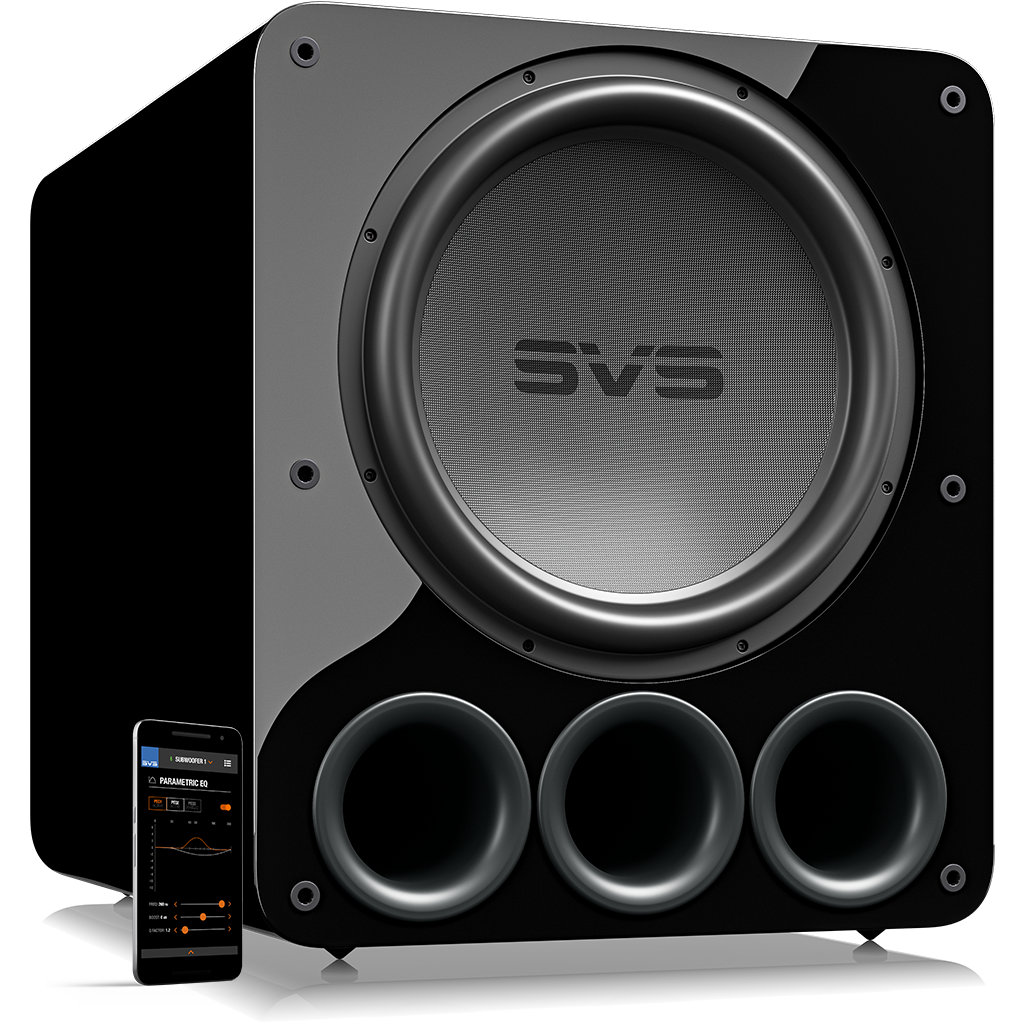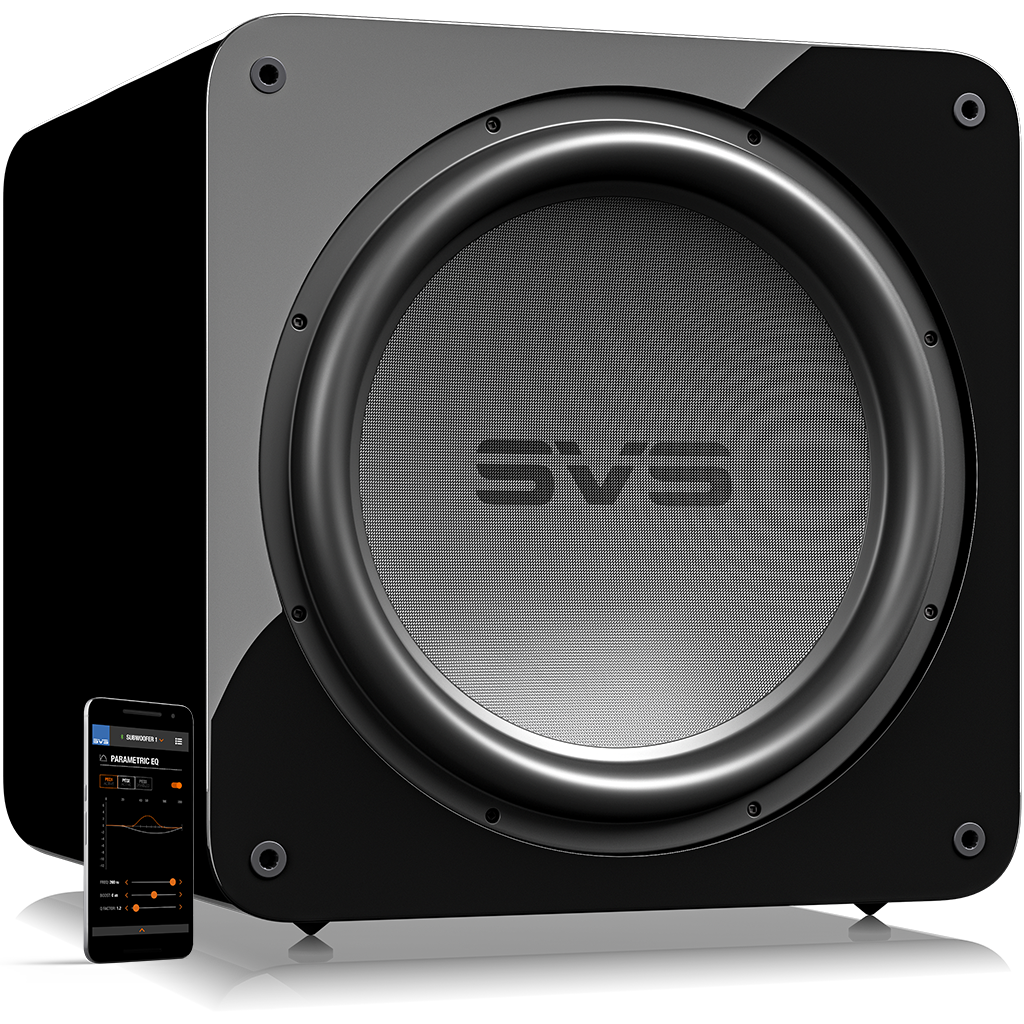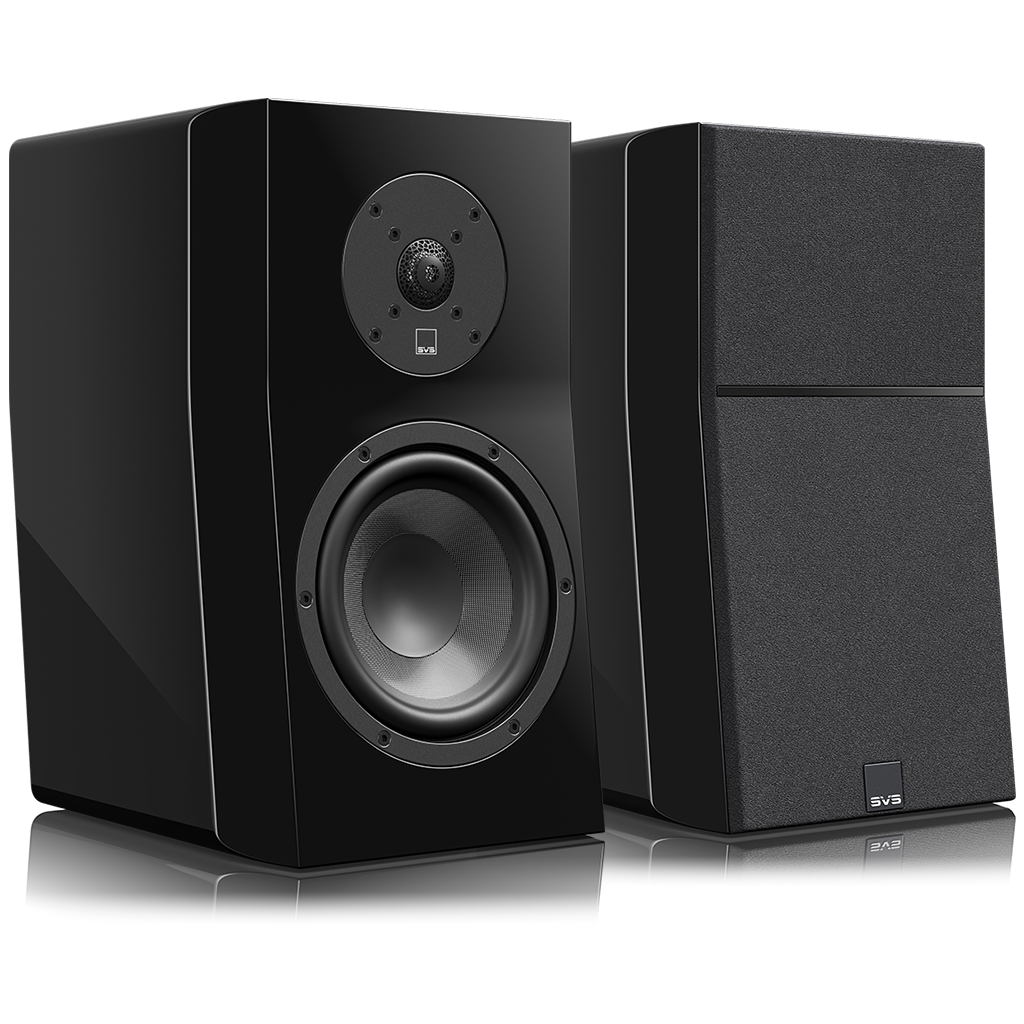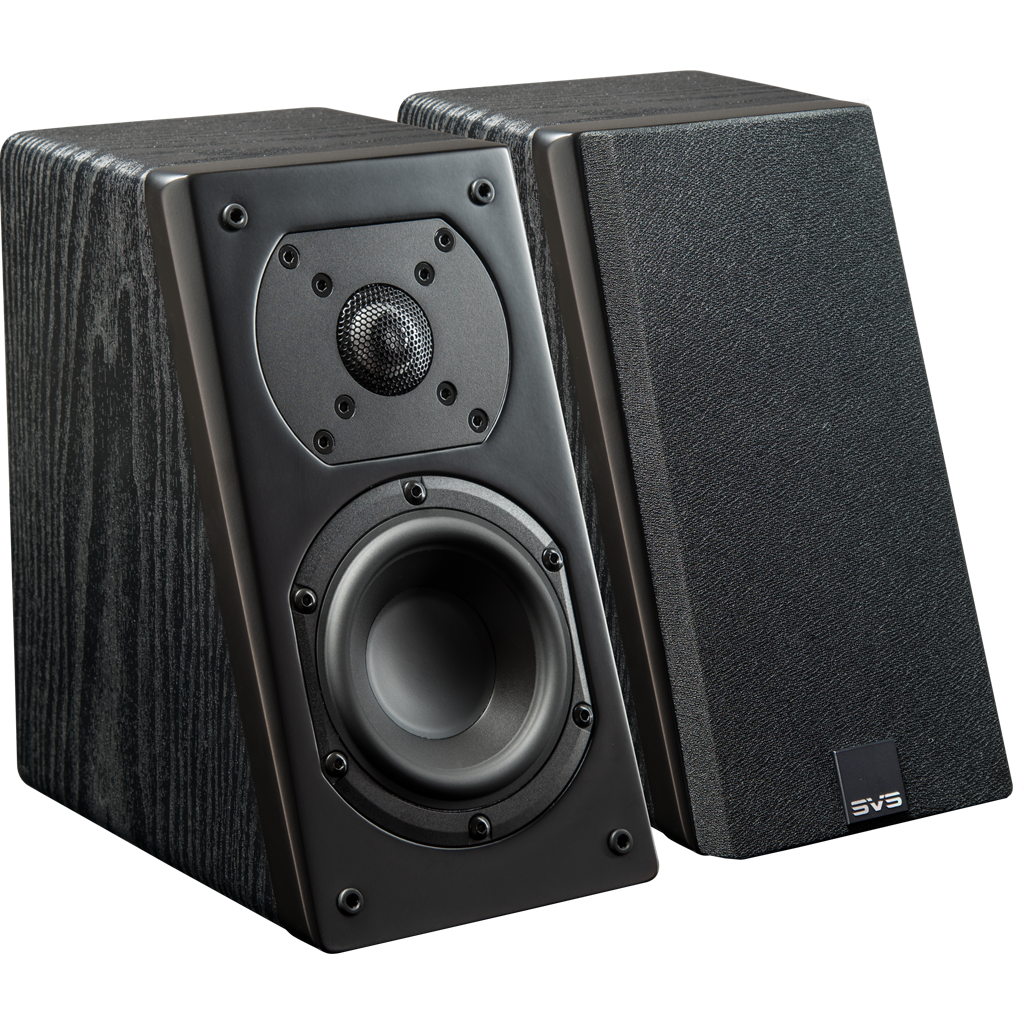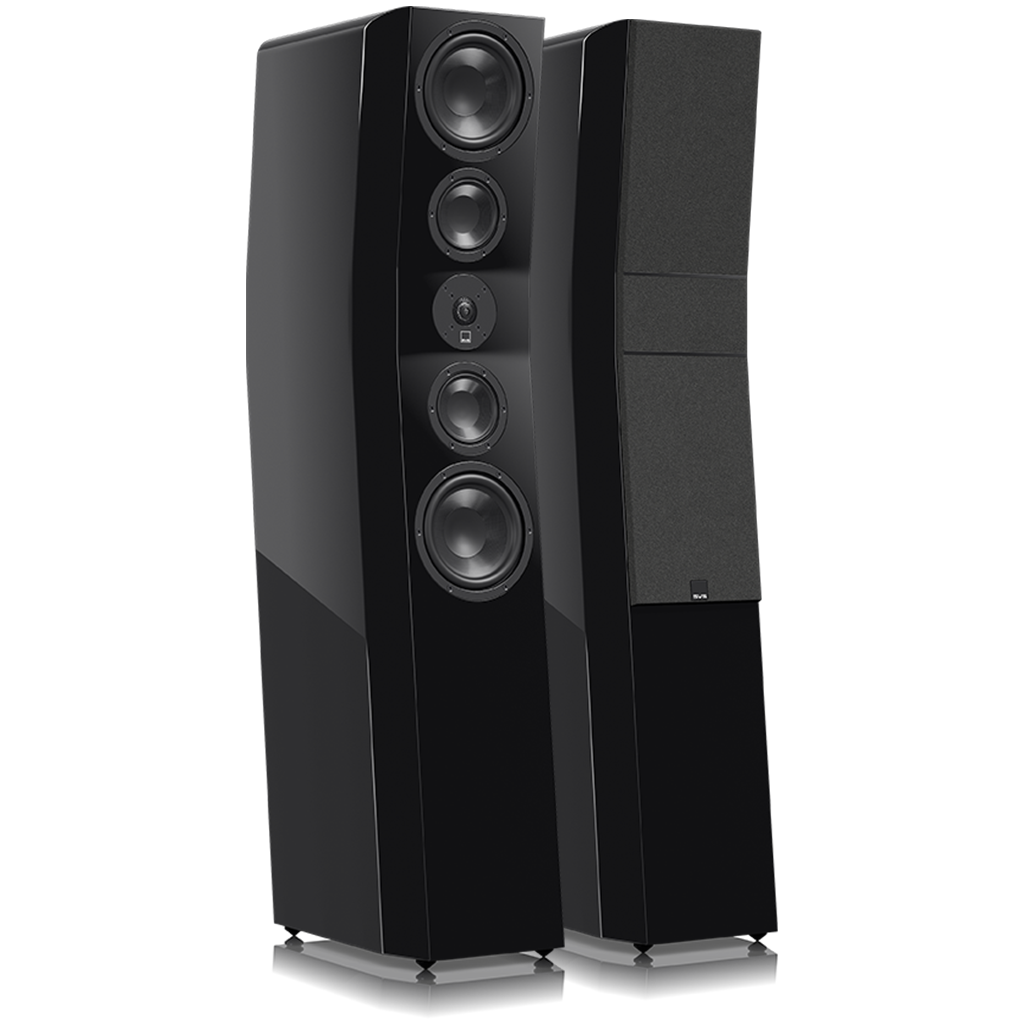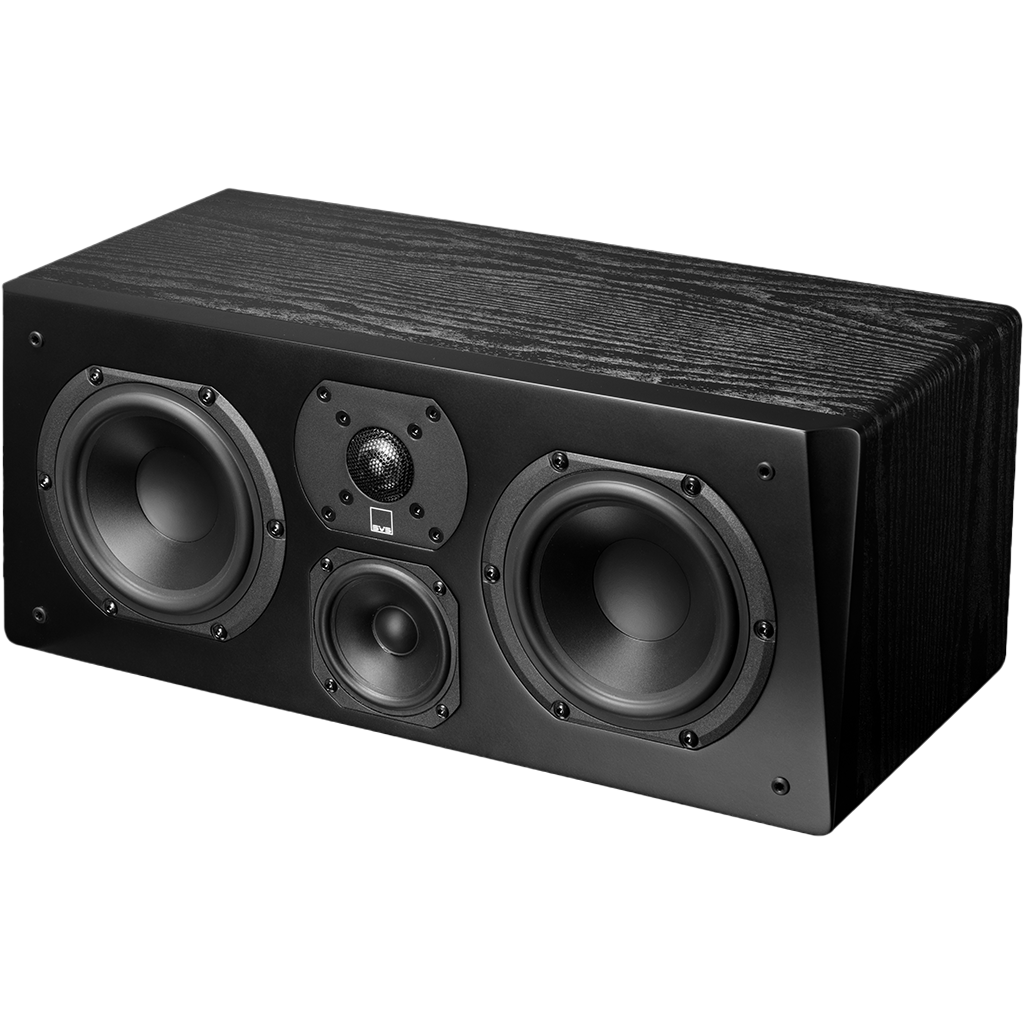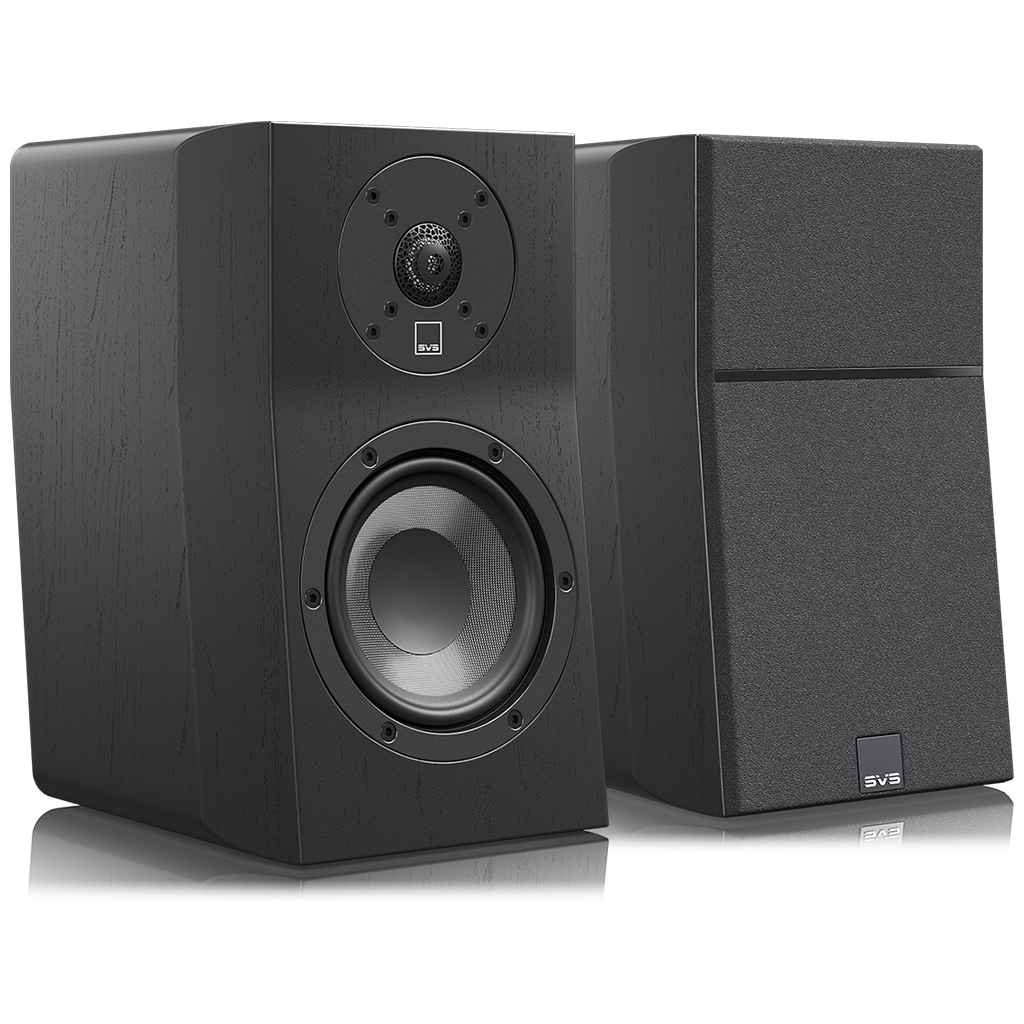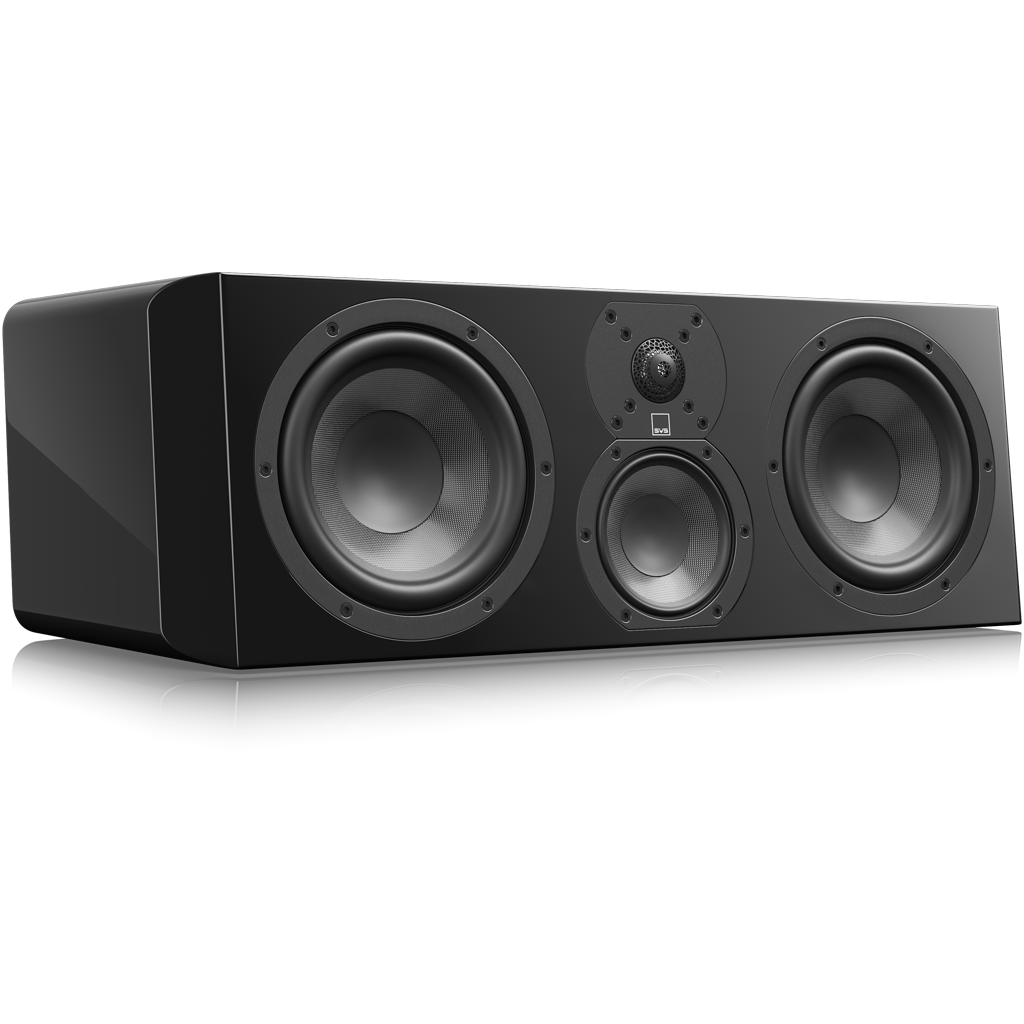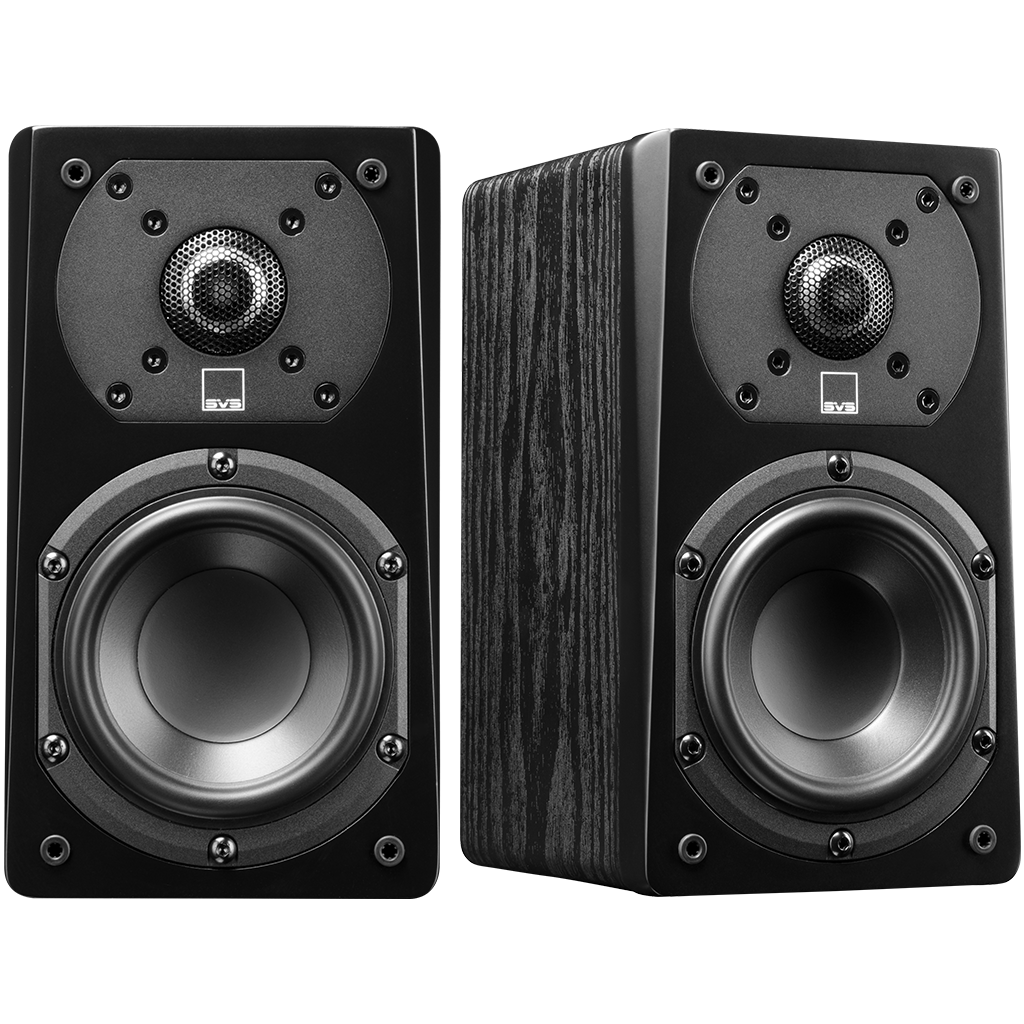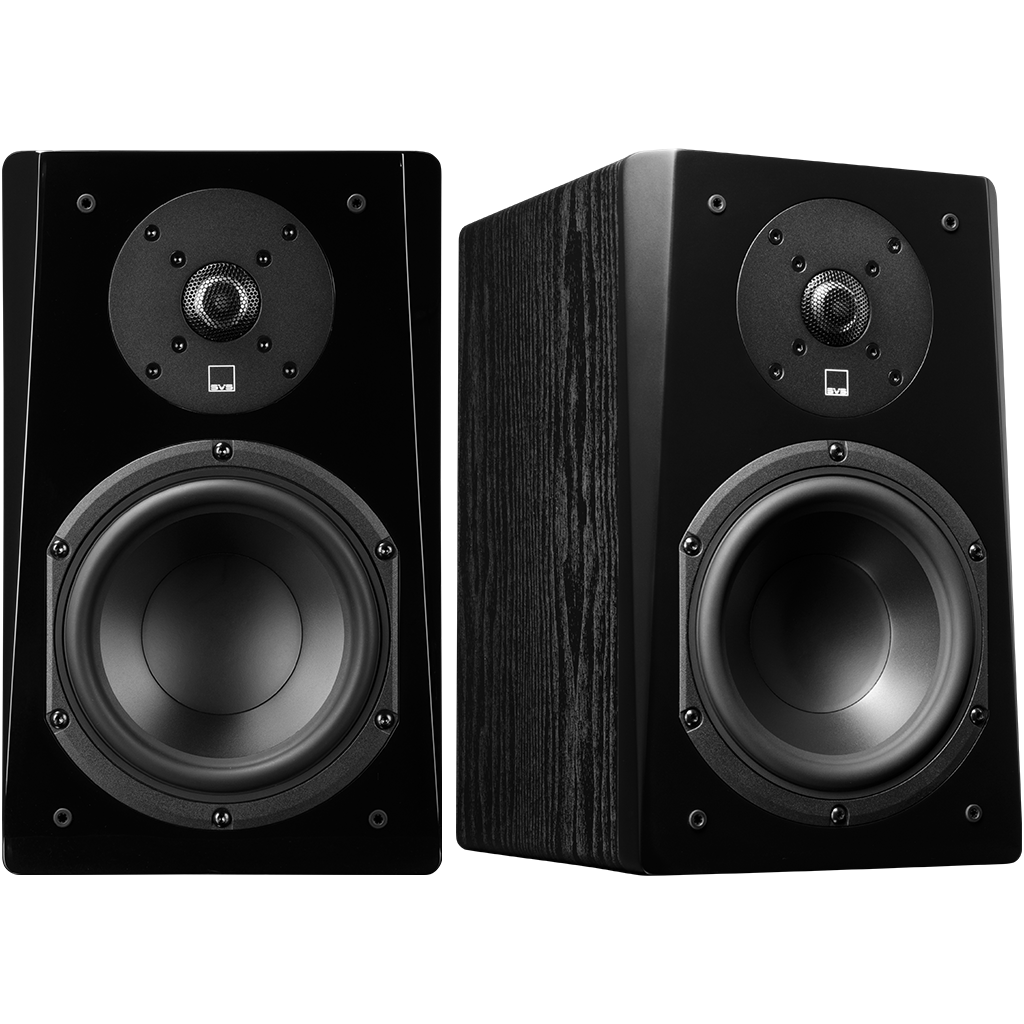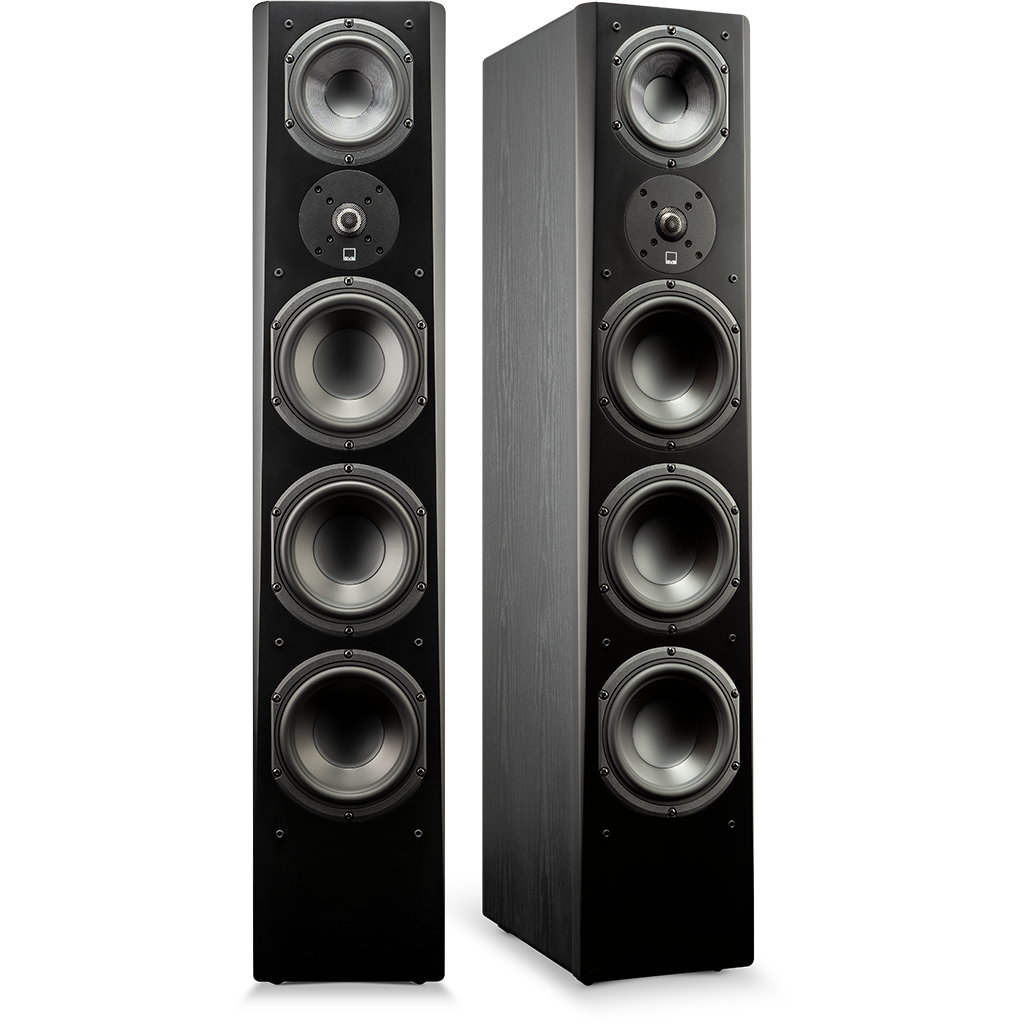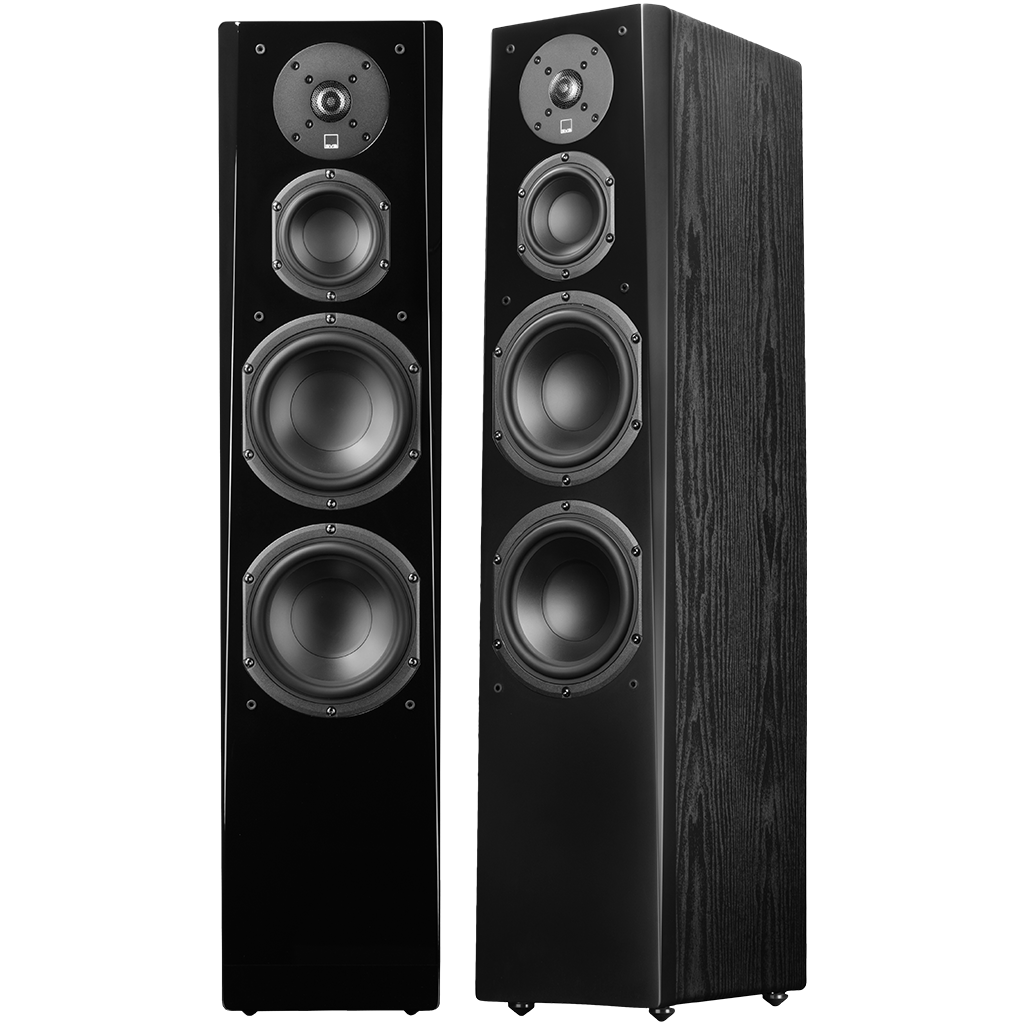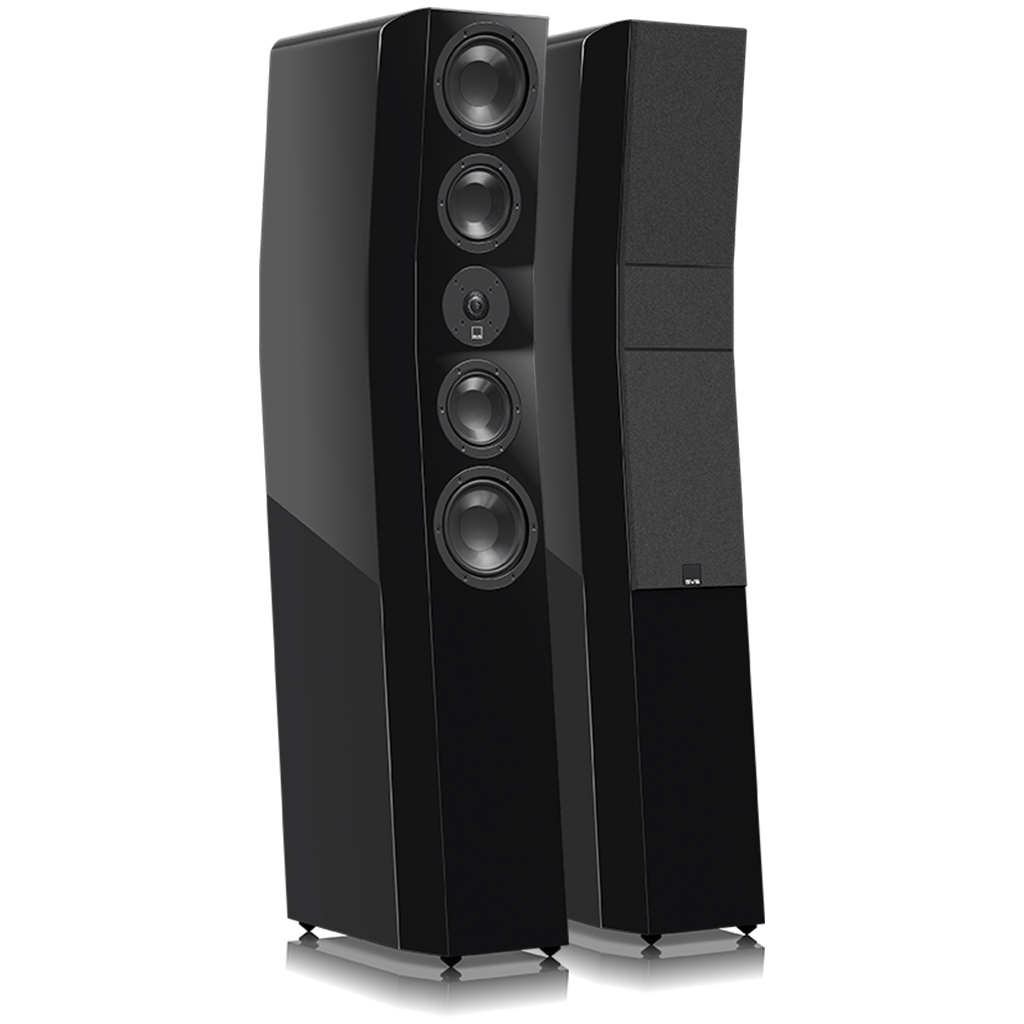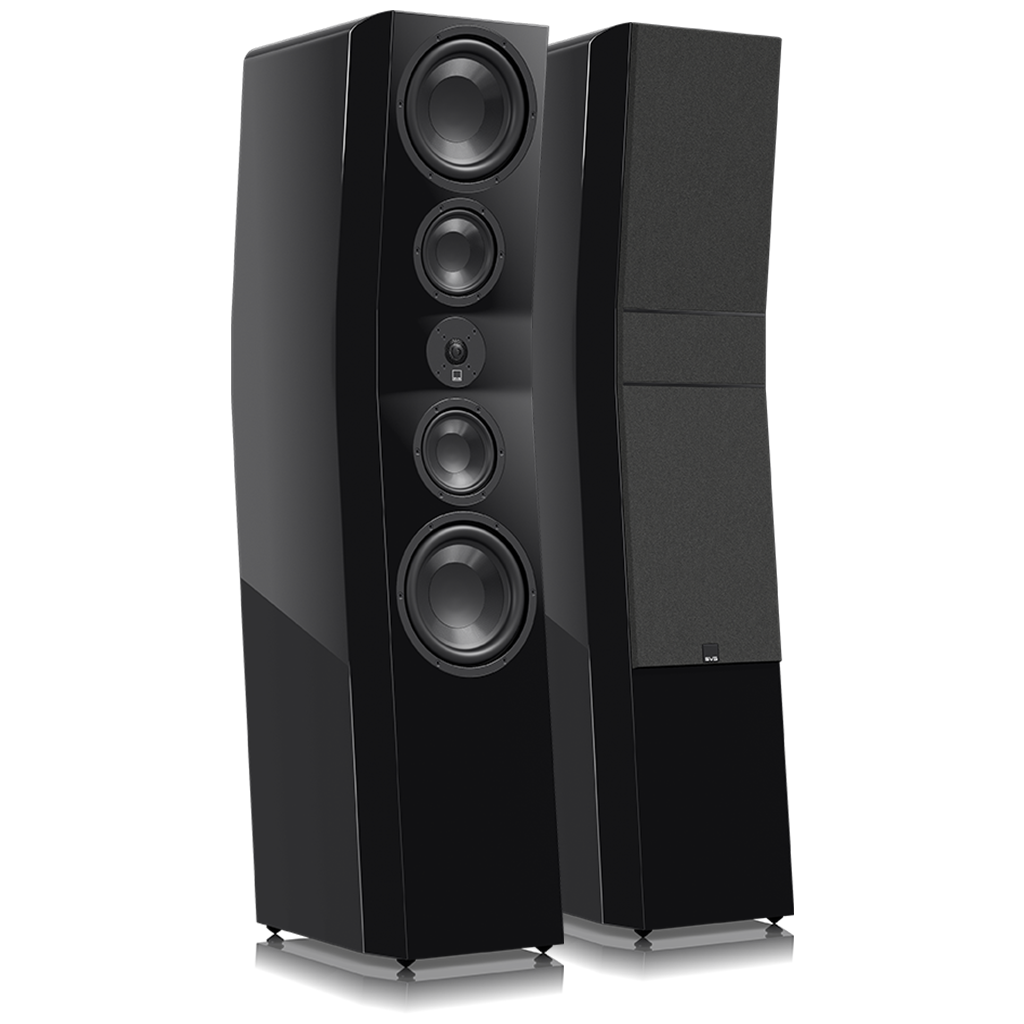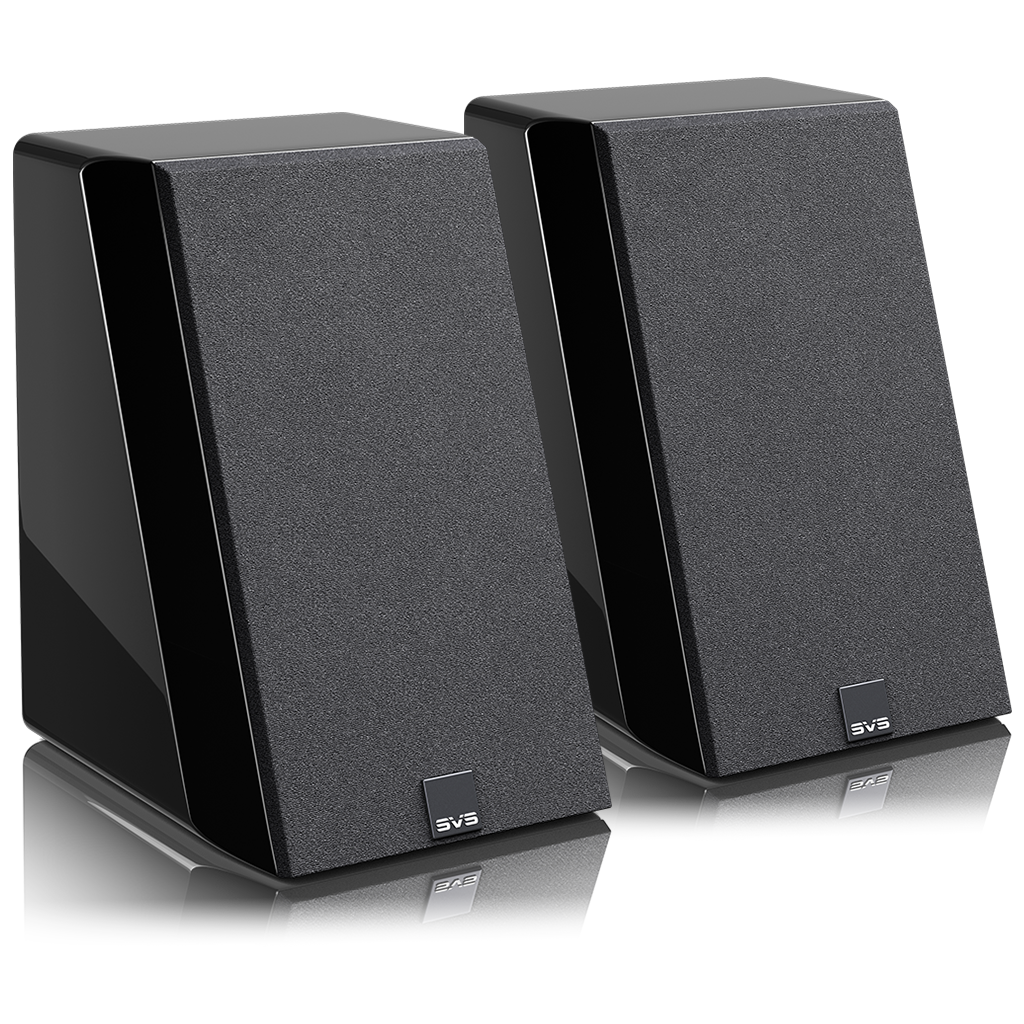Featured Artist System: Hank Shocklee, Public Enemy founder/Producer

Hank Shocklee is a music icon who played a part in launching some of the biggest names in R&B and hip-hop over the course of his 30+ year career. The original Bomb Squad producer was a founding member of Public Enemy, an architect behind Bell Biv DeVoe and a master of re-mixing albums for musicians from all different backgrounds. Shocklee’s pioneering style featured the use of multiple samples and audio cuts woven into a musical melody with lyrics and a beat. It was both a signature sound and a groundbreaking technique that continues to inspire countless artists.
SVS president, Gary Yacoubian, was introduced to Shocklee in Las Vegas a couple years ago and the two struck up a friendship while enjoying music and movie demos on several SVS systems. Shocklee was building a new audio system and decided to audition SVS Ultra Bookshelf speakers as part of his process.
Gary observed, “I am inspired by Hank every time we speak. He weaves music, artists and his community into a total and comprehensive cultural vision. He is an amazing guy and his body of work blows me away!”
Currently, Shocklee is the driving force behind Shocklee Entertainment, a multimedia production and new media company specializing in the Future Frequency of music, films, media and tech. In between running his production company, cutting a new album and making appearances, Shocklee shared some knowledge with us.
Questions And Answers:
How has the progression of audio technology influenced your career as a musician and producer?
The technology has changed a lot because when I first started, we were listening to $25,000 systems and recording in massive studios with every kind of equipment you can imagine, and rightfully so, because that’s the only way you could get a professional sounding record and hear how it sounded across the spectrum from your car to headphones to your home system. I was really on the analog side for most of my career, where you go into the studio, record on to tape and master from there. Now, everything is computerized and you can do pretty much everything at home.
It’s funny, I used to have dual cassette stereo with a five band graphic equalizer and screen that showed the frequency response of the track. Back in the day, that was my test pilot. Everything I created had to meet the standard of sounding good on that tiny system, so I knew it would translate anywhere else. It was my “Trusty Ears Away From My Ears” because my thing was always to make sure I had the best possible sound, even if it’s listening to a.m. radio or a voice recorder.
On some level, the technology has made things easier, but I actually find it to be more challenging when you don’t have the comfort of working in a studio with engineers, sound technicians, artists and all the hardware used in making a record. Everything now comes inside the box and a lot of mixing and mastering has changed drastically because of that.
How has the progression of technology affected the music?
When we first started working with digital tools, it was pretty sterile and cold, especially coming from where I was with some of the best analog gear in the world. But now all the technologies and the plugins have really progressed and do a good job of bringing that warmth and life back into the music, and it continues to get better.
Technology aside, music is passion man, and everyone who’s into it, is in it because of the passion. When I started I never knew I was going to make any money, but I knew music was powerful. If you don’t have that passion and drive, the results won’t be there. I never made a record to please A&R people or the artist, I always wanted them to enjoy the process, but my focus is not on making other people feel good, but instead making something that I’m happy with that no one else would try to do.
I spent a lot of time honing in on the craft and studying how sound effects people and how it communicates subconsciously. Music is more than just the sum of lyrics, instrumentals and synth beats, it means nothing unless someone listens to it and feels it. Most people say you need good ears. For me it’s not about having good ears, it’s about being able to feel what you’re hearing. At the end of the day, the technology and clinical stuff doesn’t matter as much as what feels right. Sometimes when it’s technically wrong, it’s actually right. That’s what makes production so important and what makes the difference between something successful versus not successful.
Why is sound quality, and having good speakers important to your craft, and to you personally?
I’ve always been interested in sound quality, mostly from the perspective of asking, does it capture the emotion of what you’re supposed to be hearing? Or does it give something back that creates a positive reaction for the listener? Ultimately, I’m trying to create a connection and make a happy relationship between the artist and customer, and to me, sound quality is a huge part of that.
When I’m looking for a studio – the first thing I’m looking for is a quality monitoring system. I never picked based on the recording equipment, it’s always based on what I can hear coming from it. If it sounds like I’m listening to music in my living room, that’s the place I’m going to be most comfortable. As a producer, I have to account for the fact that people like to listen to music in the most comfortable atmosphere they have and enjoy it on a level that eases their mind. I try to recreate that experience in the studio – to really make it sound good in all those environments.
The digital world changed everything and most producers now listen on computer speakers or lifeless studio monitors, but I never really liked listening this way. To me, computer speakers sound like garbage, but it’s what a lot of people have at work and home, so you have to account for that. You really have to mix on multiple levels – for a phone, a computer, a pair of floor monitors, and even on a big platform, like in a club environment, and you need multiple monitoring systems in order to create a sound that works for each.
In terms of the actual sound profile of the speakers, you always want the most accurate and flattest frequency response possible. You also don’t want to listen to something that becomes ear fatiguing or has a harshness that forces you to constantly adjust the volume. It has to be completely transparent so you can hear with a level of detail that lets you make really fine changes. Monitoring is everything – even more important than recoding equipment, which is almost all the same above a certain level. The thing that’s changed most is people’s hearing and expectations.
What was your first impression after hearing the SVS speakers?
When I first got the chance to hear the SVS Ultras, I remember telling Gary that I loved how I could hear the definition and detail in the mid-range, something that’s been noticeably neglected for too long in favor of inflated bass or just because of poor design. When I hooked up the Ultra Bookshelf to my McIntosh amp – it was like the clearest resolution of audio playback I’ve ever heard. The speakers just sounded amazing to the point where I was sort of frozen in the moment. In fact, they offered so much detail that I now use them as nearfield monitors when I’m listening back in production because they can reproduce everything that’s going on in the mid-range so precisely. So when I play them on the bigger speakers, I know that frequency range is perfect.
How have SVS speakers enhanced your listening experience at home?
The easiest way to say it is, it just sounds good and it feels good. It’s not like a sterile experience. A lot of systems I listen too come across as sterile or like they’re trying too hard to give you this boomy kind of sound. The SVS sound is very flat in terms of the full frequency response, and as a producer, I love the attention to accuracy. It lets the work I do with artists be fully appreciated.
I was also impressed by how seamless the transition was from music to video games to movies, and that’s a real test when you listen to a lot of speaker systems. Do you lose something by listening to the music side or watching the movie? Are you sacrificing big dynamics for subtle details? With my SVS speakers, the transition is seamless and I get both the precision and the energy with everything I’m listening to. Audio systems today are family systems, and at any time there could there could be gaming, movies, or music being played so it’s important to have that flexibility. SVS handles the demands and subtleties of all formats better than any speaker I’ve owned.
What inspired the birth of Future Frequency?
It’s really about a mindset. All music to me has a unique frequency vibration that will resonate with people in a certain way if there’s passion behind it. When you look at my earlier records with Slick Rick, Bell Biv DeVoe or LL Cool J – they were all different, but the one thing they all had was a similar frequency that was all about intensity, passion, growth, change, and pushing you in a direction of making something better.
Looking towards the future, the lines are blurring. I’ve listened to a lot of music, from Stevie Wonder, James Brown and Motown to early metal from, Quiet Riot, The Scorpions, and Rush, to a lot of jazz from Thelonius Monk, Darndanelle Hadley, Art Blakely and the Jazz Messengers, and others – and listening to such a wide variety puts you in a zone where music no longer resonates in terms of genre. I could be listening to David Bowie or Kool & the Gang or George Clinton, or Beethoven, it doesn’t matter what the genre, everything is about a vibration and a frequency, and what that frequency is telling you. We listen based on frequencies, and not so much based on style and genre anymore. You don’t listen to a pop record because you want to hear a pop record, but instead you vibrate with a frequency it’s putting
In the 60s and 70s music was largely putting out a frequency of being harmonious and melodic with topics about love and understanding and peace, and with the 80s, a lot of that got pushed into a zone – where a more negative frequency emerged that wasn’t a conducive environment for growth and inspiration. It downplayed everything. The reason earlier records still resonate and attract new listeners is because they speak to people in a way that raises consciousness and passion, and all the things that make you feel successful in anything you do.
In the current atmosphere, a lot of artists are now influenced by movies, lectures, TV shows, panel discussions – and all of these things are triggering ideas. And these ideas can be forged into whatever we want – a song, documentary, app, video game – anything that’s expressive of our creativity. That’s the Future Frequency.
How has globalization impacted music?
It’s really connected people and allowed influences from all over the world to mix. With this global stage, we have the ability to touch and move everybody, not just be localized to one state or country. A lot of the biggest artists today, you don’t even know where they’re coming from – Brazil, Belgium, Australia, the UK, and everybody is vibrating in this global market with more music at our fingertips that ever before. But the music we’ve made here in the U.S. has also resonated around the world and its created an appreciation and inspired creativity when people find old records they can use for sampling or remixing, or making new records based on these same vibrations.
The industry has changed to the point where it’s no longer just about the big three labels, its gone independent. There is no time and no space. The onus is on us as innovators, entrepreneurs and artists to create this new industry, and do it based on collaboration. The best part is, I can be in NY and put out an album with someone in Berlin. So we can cross space and genres. Music can be anything and come from anywhere – a country record with elements of hip-hop, an EDM dance track with classical Italian opera samples, dance pop with retro soul - the frequency is constantly evolving and changing, and now that music is on a world platform, the entire world can get involved with it.
Tell us what you’re working on…any up-and-coming projects launching or causes you want to highlight?
I’m still doing a lot to spread the word about the Future Frequency through Shocklee Entertainment and Shocklee.com and I’m currently in the process of producing my first purely electronic album, which has been an incredible experience. That should hit in early 2016.
Another project I’m working on is an album based on data I gather while scanning my brain while I’m watching and listening to different music and videos. I will then take the gathered meta data and transpose it back into a computer which uses a program to transform the data into music. It’s a really ambitious project but brain mapping is a $100 billion industry and I want to show how the human mind, without the hands, can create data that can be turned into vibrations and sounds and ultimately music.
Outside of that, much of my time is spent building music communities around the world so we as creators can share ideas, thoughts, and music, collaborate on projects, and have a platform for growing and perfecting the craft. I’m putting together an electronics music makers association that will launch worldwide with chapters in different cities and countries with a goal of helping others succeed making music. It will include writers, technicians, app builders, synthesizer specialists, producers, and anyone into the art of creating a sonic signature through the means of electronic music. It will allow people to network, collaborate, build, promote and learn from others who have made it.
I see a lot of parallels between my vision for Shocklee Entertainment and the SVS mission because we share a lot of the same values and an overall commitment to community and building something better for that community. I can’t say enough good things about SVS sound quality, but it’s the shared vision and energy that makes the experience special on another level.






